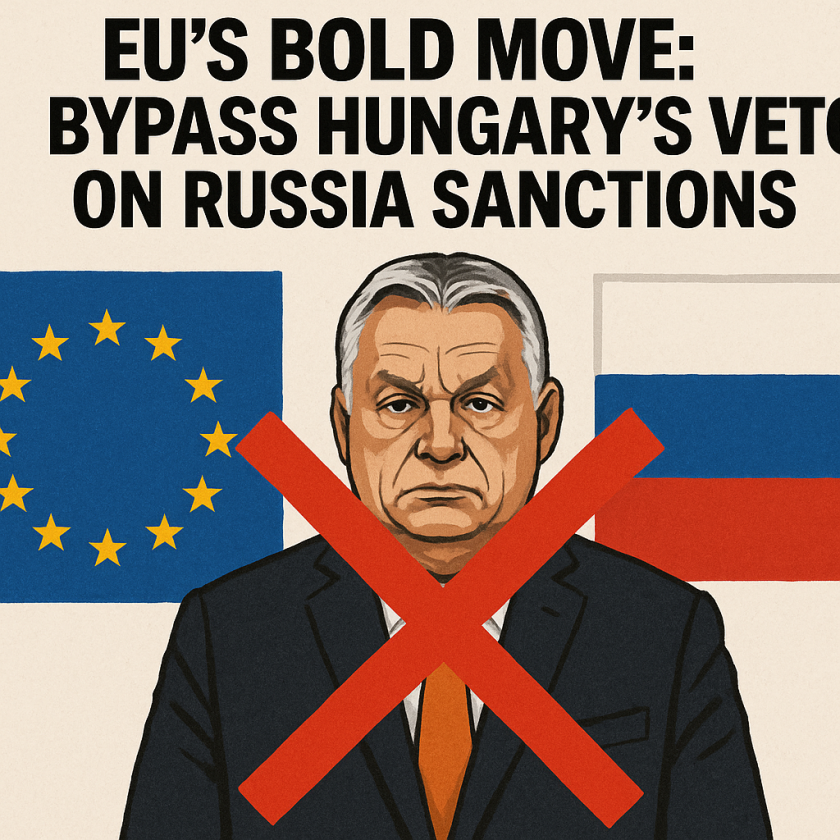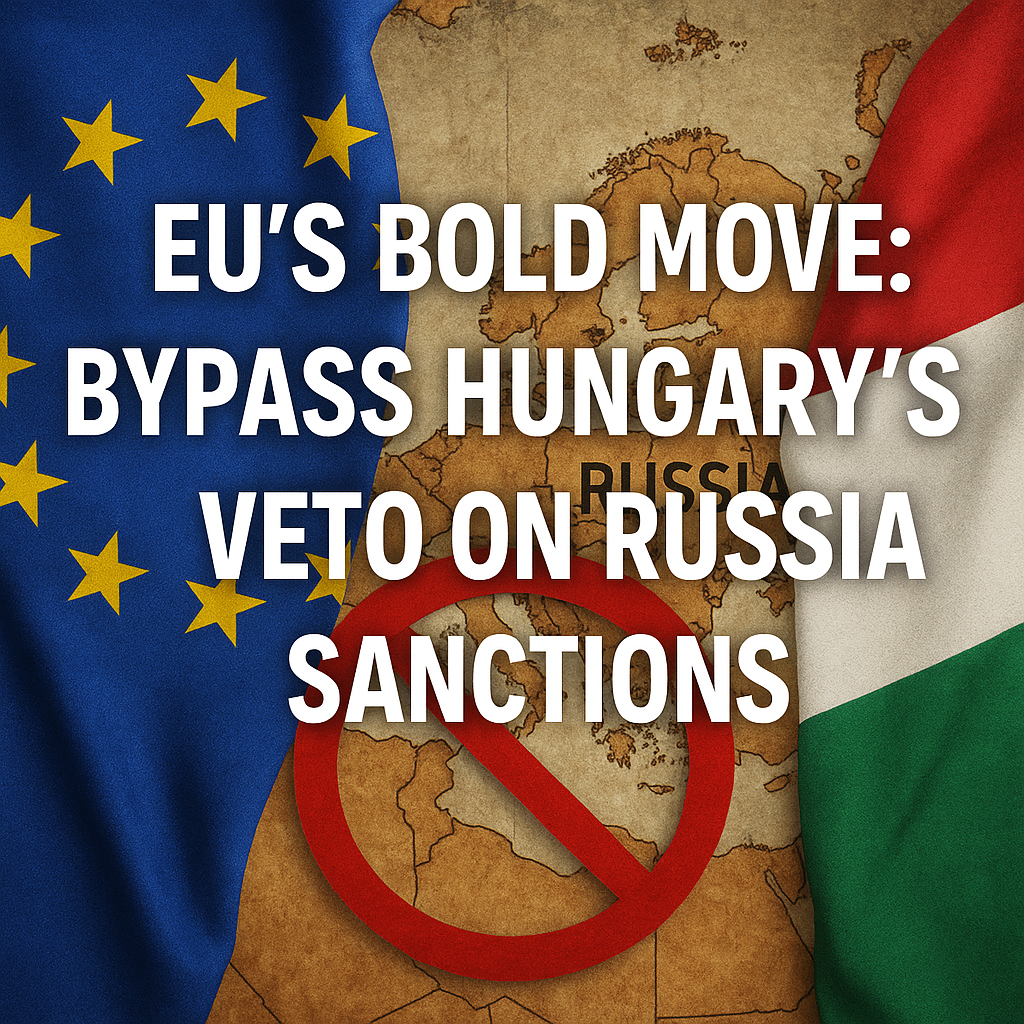EU’s Bold Move: Bypass Hungary’s Veto on Russia Sanctions
EU’s Bold Move: Bypass Hungary’s Veto on Russia Sanctions
The EU’s recent decision to sidestep Hungary’s veto regarding sanctions on Russia marks a significant pivot in the bloc’s geopolitical strategy. This maneuver highlights the ongoing tensions within the European Union regarding a united front against Russia and the broader implications for EU solidarity.
The Context of Hungary’s Veto

Hungary’s rejection of specific sanctions against Russia stems from its close economic ties with Moscow, particularly in the energy sector. According to various reports, Hungarian Prime Minister Viktor Orbán has voiced concerns that harsh sanctions could negatively impact Hungarian consumers and the economy at large. This position resonates with many Hungarians, who are wary of rising energy costs resulting from EU policies aimed at punishing Russia for its actions in Ukraine.
However, this veto is increasingly seen as an obstacle to the EU’s collective action. The rising urgency to maintain a united front against Russia—especially after its military actions in Ukraine—has led to frustration among EU officials. European Commission President Ursula von der Leyen has emphasized the importance of a unified response, stating that “In times of crisis, we need to stand together.”
Implications of the Bypass Strategy
Evolving EU Dynamics
In aiming to circumvent Hungary’s veto, EU leaders are effectively testing the limits of their collective power. This bold step is not without its criticisms, as some experts worry this could set a precedent for unilateral actions that undermine democratic processes within the EU. Critics argue that such measures might deepen divisions among member states rather than foster cooperation.
On the other hand, proponents believe that this decisive approach is necessary to protect the integrity of EU’s foreign policy and prevent individual countries from stymieing joint efforts. As EU foreign policy chief Josep Borrell noted, “We cannot afford to be held hostage by any member’s veto.”
Reactions from Member States
The decision to bypass Hungary has generated a mixed response among EU member nations. Countries like Poland and the Baltic states have expressed support for a more aggressive stance against Russia. They argue that any delay or obstruction caused by Hungary jeopardizes not only their national security but also the security of the EU as a whole.
Conversely, voices from Hungary and its allies feel marginalized by this decision. Hungarian officials have described the move as lacking respect for national sovereignty, highlighting the inherent tensions between EU regulations and individual nations’ rights. Their stance raises fundamental questions about the balance between collective action and individual member states’ concerns.
The Path Ahead for EU Sanctions
Necessity for Unity
As the landscape evolves, the necessity for unity among EU member states becomes even more critical. While the recent bypass indicates a willingness to take bold action, the long-term implications remain uncertain. Should this trend continue, it’s vital for the EU to strategize on how to maintain harmony among its members while pursuing robust foreign policy measures.
Future Challenges
The escalating energy crisis in Europe adds further complexity to the situation. Rising electricity prices have led to widespread discontent across the continent, compelling some nations to reconsider their alignment with EU sanctions against Russia. Should Hungary’s veto be continuously overlooked, other member states might feel emboldened to express discontent, potentially fracturing the EU’s façade of unity.
In conclusion, the EU’s maneuver to bypass Hungary’s veto illustrates both the desperation and determination of the bloc to present a cohesive front against external threats. Balancing the need for unity with respect for individual member states’ rights poses an ongoing challenge. This situation not only underscores the complexities of EU governance but also serves as a critical touchstone for future EU foreign policy initiatives.




































